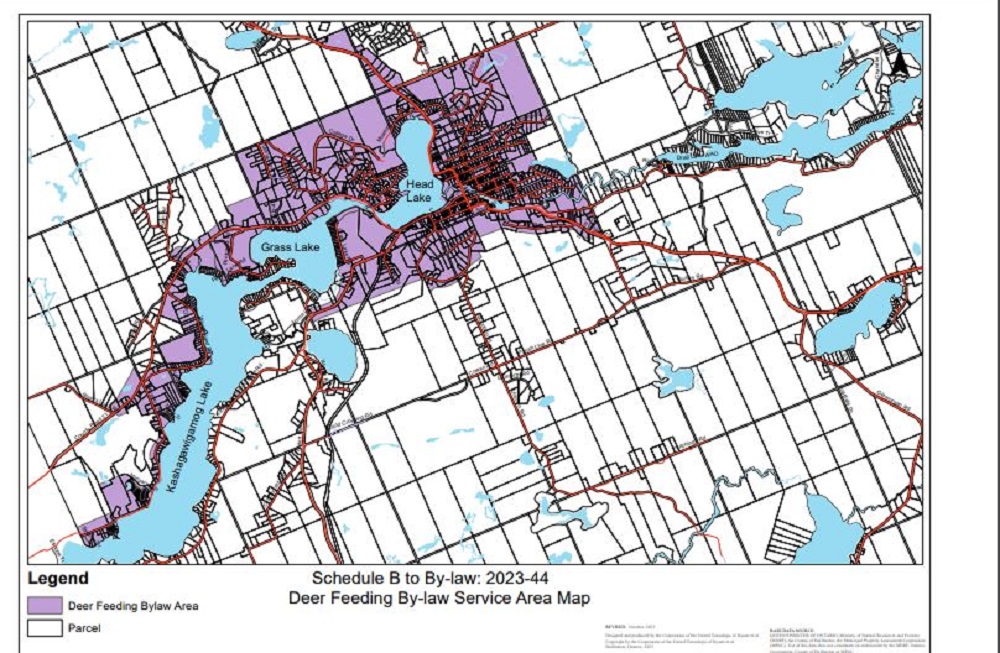Timeline
• Haliburton residents Mike and Debra Landry made a delegation to council in December 2022. They believed deer were becoming a nuisance in the downtown, and contributing to deer-vehicle collisions.
• Dysart debates a bylaw, coming up with a May 1-Sept. 30 ban.
• The Stop Deer Feeding Property Owners Coalition, Haliburton-by-The-Lake Owners Association and Shelley Stiles of County Rose write to council Sept. 26 saying the bylaw, approved in July, needed a revisit. They wanted a complete ban.
• Greg Gillespie and Chris Bishop spoke to council Oct. 24. So did resident Lori King, who offered a counterargument to the anti-deer feeders.
• Council is expected to pass a revised bylaw at its November meeting.
Reasons not to feed
The Stop Deer Feeding Property Owners Coalition say the village deer population has experienced rapid and exponential growth over the last five to eight years because of feeding. “This has had serious consequences on private properties, public spaces, the natural environment, the local economy, and the deer themselves.” They say:
• Natural and planted vegetation on private properties and public space is being damaged. Many residents have lost thousands of dollars in destroyed landscaping and gardens, they claim.
• Over-browsing jeopardizes the natural food supply of deer, and their shelter. Can lead to decline in other species. Forest regeneration is reduced.
• Easier for deer-to-deer transmission of disease and parasites, as well as to humans. More ticks.
• Deer-vehicle collisions
• Impact on deer: shelter (takes them from dense cover in winter); food (deer are supposed to lose weight in winter). Artificial feeding disrupts this. Commercial deer feed is nutritionally inferior to natural food, can cause gastrointestinal problems; behaviour (robbing deer of their wildness); and competition at feeders can lead to issues.
Household do’s and don’ts
The MNRF has put out a fact sheet on the do’s and don’ts of feeding wildlife, saying feeding wild animals may do more harm than good.
Do: appreciate wildlife from a distance; keep household waste, compost and pet food out of reach of wild animals; attract wildlife to your property by improving natural habitat; work together with your neighbours to help keep wild animals wild.
Do not: put out food to attract wildlife; try to approach or touch wild animals; feed pets outdoors or allow pets to roam free or put garbage out until the morning of collection.





